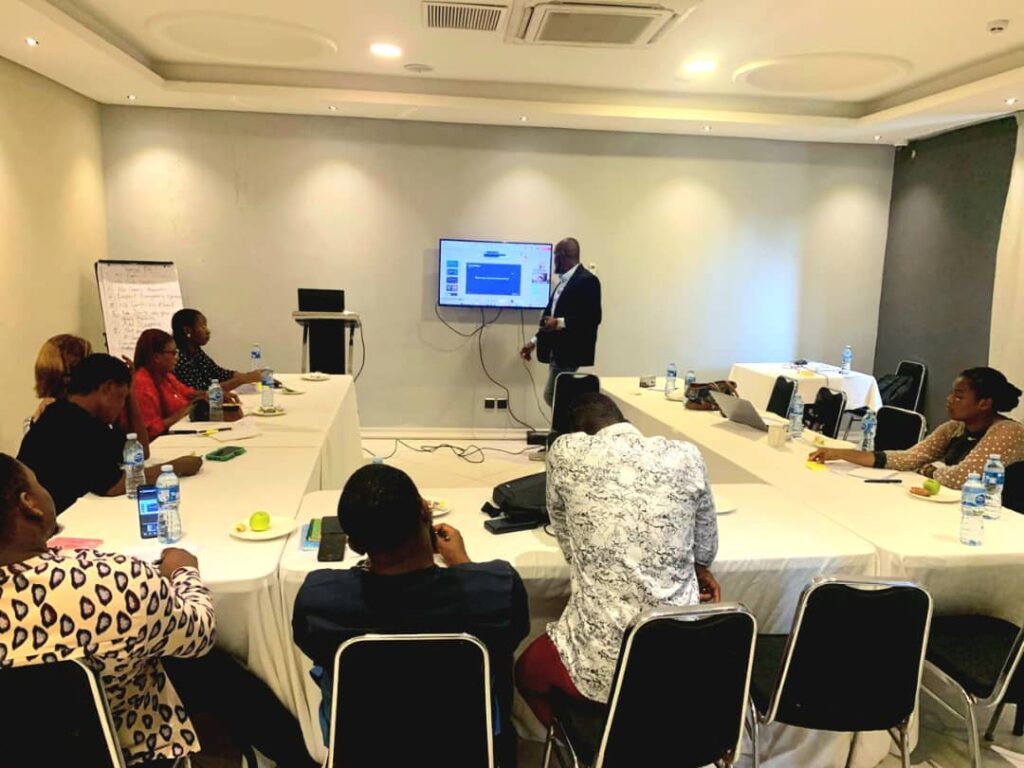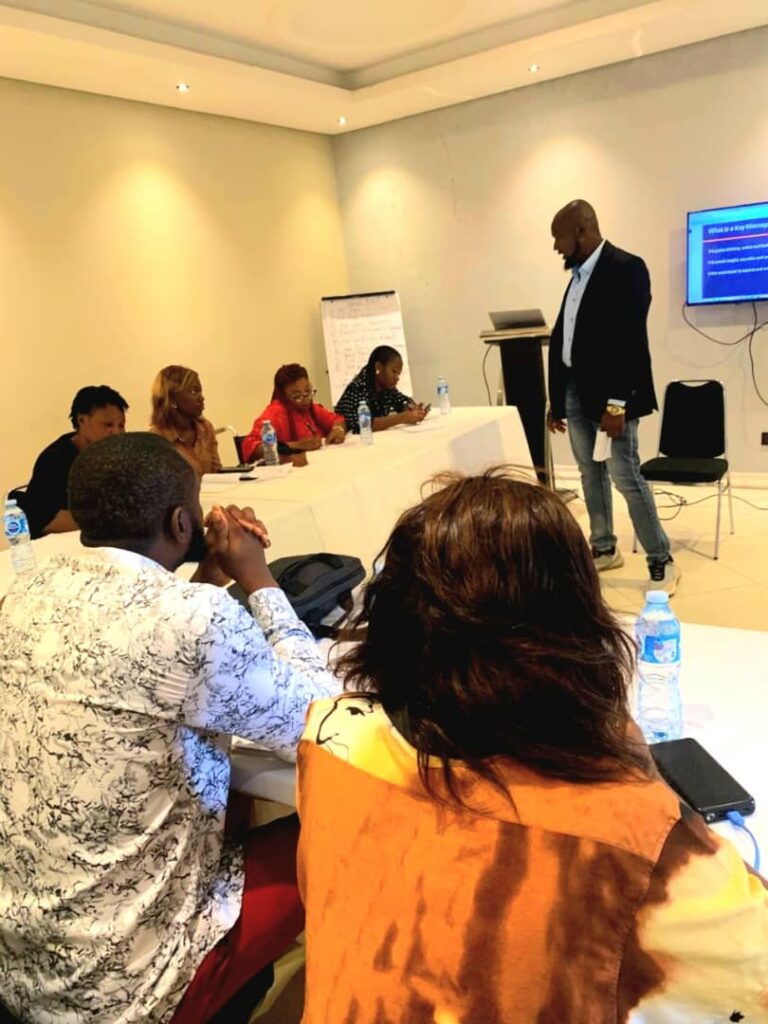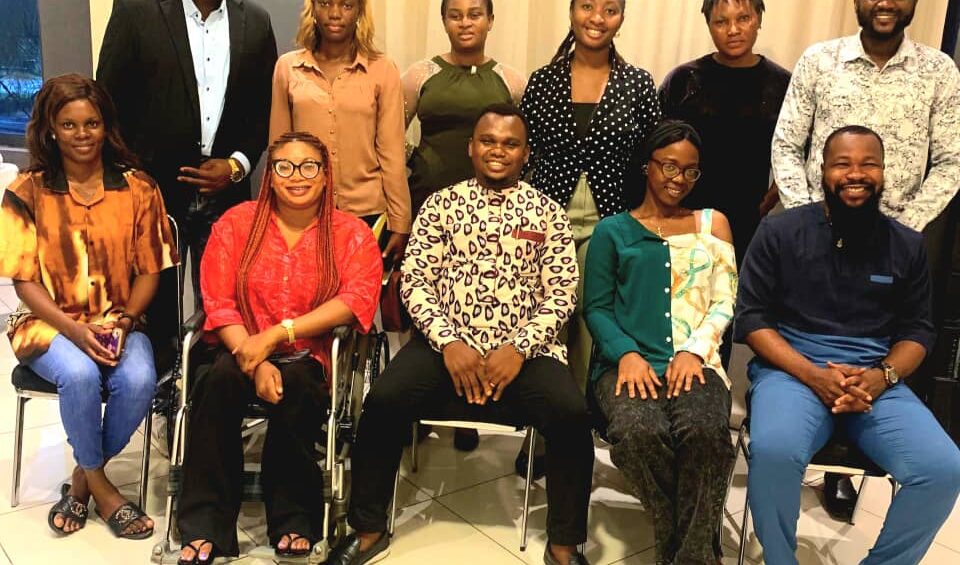By Faith Nnadi
A data-driven effort to strengthen rights-based healthcare took centre stage in Owerri, Imo State, as a Cascading Training Workshop was convened on 10 October 2025 under the Breaking Down Barriers (BDB) to Health Services (AIDS, Tuberculosis, and Malaria) in West Africa Program, a regional initiative supported by the Global Fund to Fight AIDS, Tuberculosis and Malaria, in partnership with the Thomson Reuters Foundation.
The workshop, convened and facilitated by Izuchukwu Basil, brought together 11 programme implementers and advocates, including health-workers, civil-society representatives, human-rights defenders, and development partners, to address human-rights and gender-related barriers that limit access to HIV, TB, and malaria services.

According to UNAIDS, Nigeria has nearly two million people living with HIV, of whom approximately 59% are women aged 15 and over, 33% are men 15 and over, and 9% are children aged 0–14. While significant progress has been made toward treatment and prevention targets, national agencies report that stigma and discrimination remain “significant barriers” to achieving HIV-and-AIDS goals by 2030.
In recognition of these persistent challenges, Nigeria became the 41st member of the Global Partnership for Action to Eliminate All Forms of HIV-Related Stigma and Discrimination on 5 March 2025, signalling the country’s commitment to fostering inclusive, rights-based healthcare systems. Despite this progress, implementation of the HIV/AIDS Anti-Discrimination Act 2014, which prohibits discrimination based on HIV status, remains inconsistent.
Empowering Advocates with Data and Dialogue
Throughout the workshop, participants explored how to identify, document and address barriers within their local contexts. Sessions focused on purposeful communication, legal empowerment and inclusive advocacy.
An interactive icebreaker set the tone for collaboration, as participants shared personal stories from their community-health work. Groups then mapped out key communication challenges and proposed data-driven strategies to deliver clear, stigma-free messaging.
Discussion on legal and human-rights dimensions equipped participants with tools to engage policymakers and protect the rights of marginalised populations. In recognition of the emotional demands of advocacy, participants also engaged in security-planning exercises and mental-health reflections.

Voices from the Field
Mercy Chimezie, the Gender-Based Violence (GBV) Desk Officer at Excellent Community Health and Socio-Economic Empowerment Africa Irtalive (EXCOHSEAI), said the training expanded her understanding of inclusive communication.
“This workshop opened my eyes to new ways of engaging with communities. I’m inspired to apply these strategies in my clinic to make healthcare more accessible for everyone,” she said.
Chukwubuikem Anunwa, a development and human rights journalist, described the training as transformative.
“The legal and human-rights discussions gave me concrete tools to push for policy changes. I’m motivated to make a real difference in my community,” he noted.
For Vivian Ozuru, a member of the Joint National Association of Persons with Disabilities (JONAPWD), the workshop’s inclusive nature was deeply personal.
“I felt fully included in every session. The practical tools we learned will help me advocate for better healthcare access for people with disabilities,” she said.
Facilitator Izuchukwu Basil expressed optimism about the long-term impact of the training.
“Seeing participants from diverse backgrounds engage so passionately was humbling. We created an inclusive space for learning, and I’m confident the ripple effect will be felt across communities,” he said.
A Collective Commitment to Change
By the close of the workshop, participants outlined follow-up action plans to strengthen advocacy, promote stigma-free healthcare environments and enhance collaboration between civil-society and government institutions.
The Owerri Cascading Training is part of a broader effort under the BDB initiative to eliminate barriers that hinder equitable healthcare across Nigeria. Through sustained advocacy, evidence-based communication and inclusive partnerships, the programme seeks to ensure that no one is left behind in the fight against HIV, TB and malaria.






3 Comments
I like the efforts you have put in this, regards for all the great content.
Your ability to distill complex concepts into digestible nuggets of wisdom is truly remarkable. I always come away from your blog feeling enlightened and inspired. Keep up the phenomenal work!
Songbac3363, is this the real deal? Always on the hunt for a reliable platform. Looking forward to seeing what it offers Good luck to all Let’s roll at songbac3363